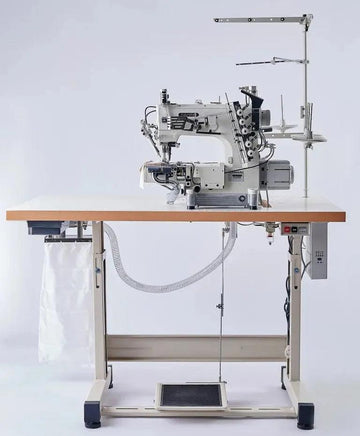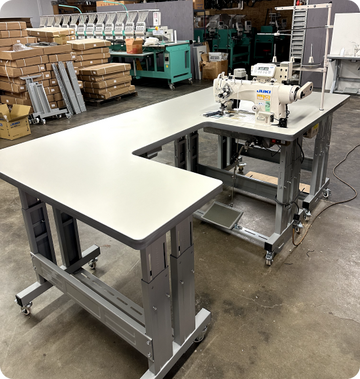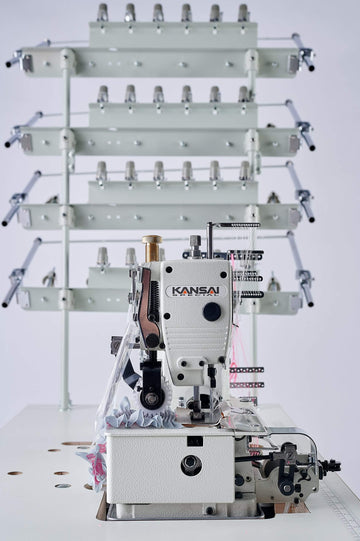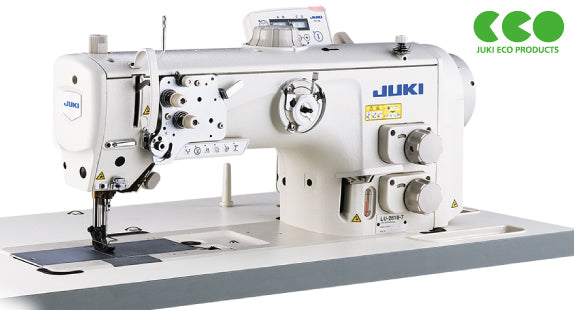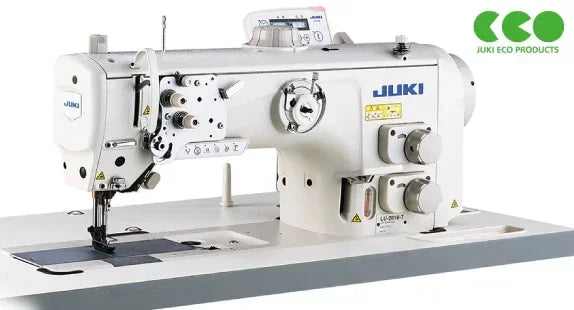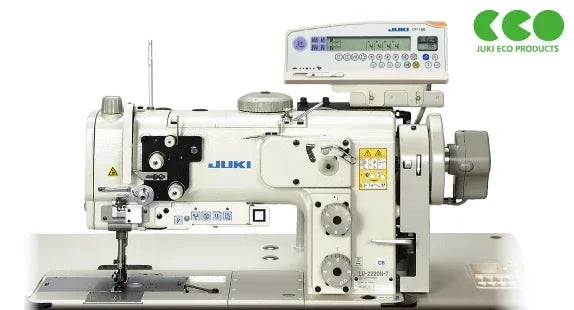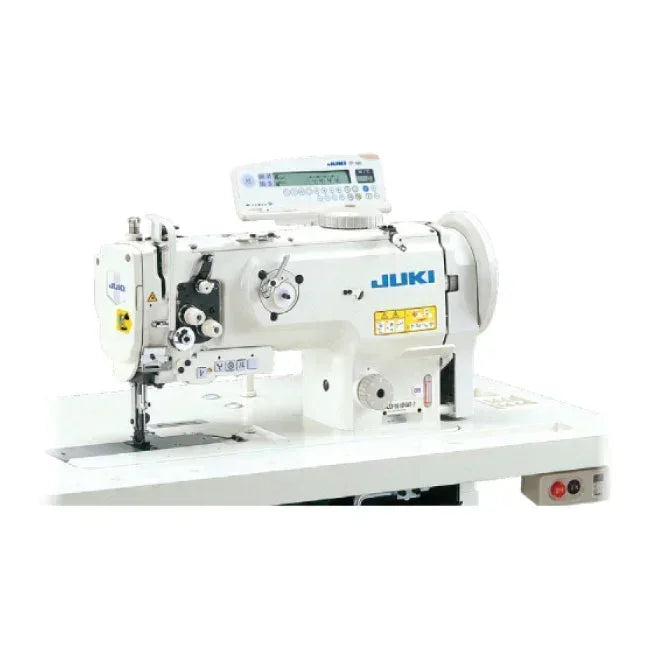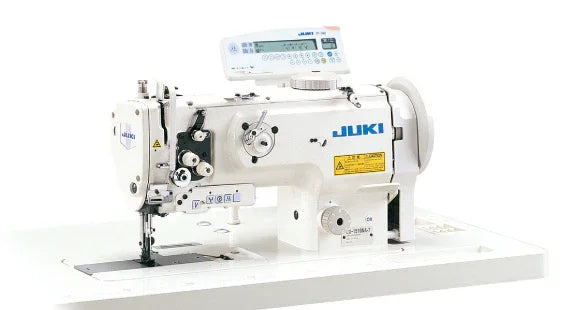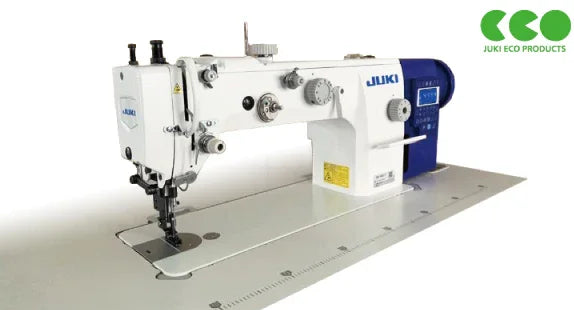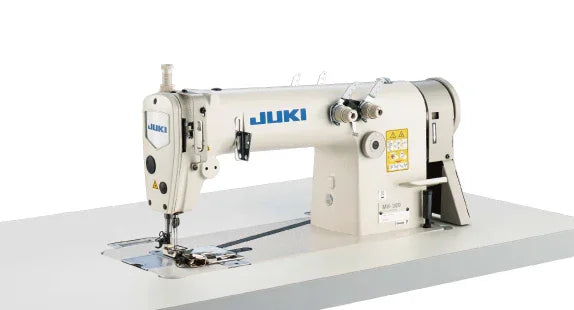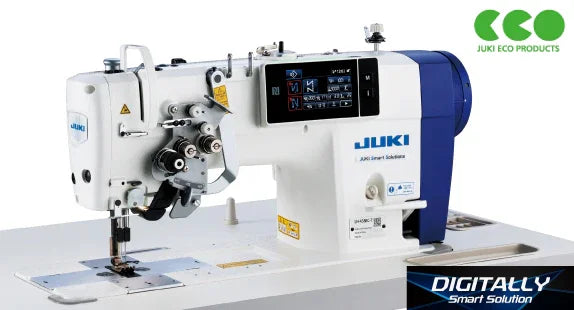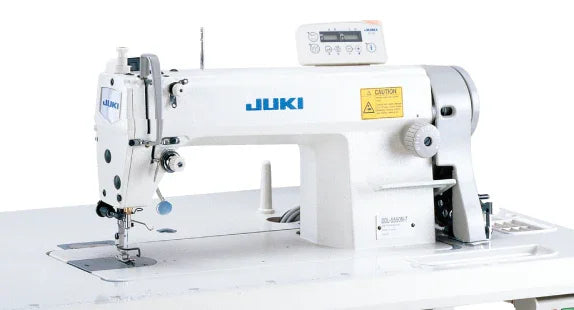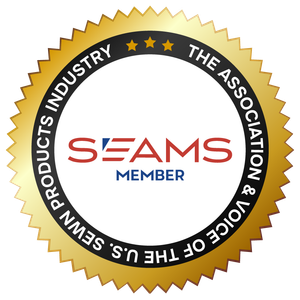High Speed Sewing Machine: JUKI
High speed sewing machines have been widely used in small workshops and large factories. Equipped with a strong motor and robust frame, they offer stitch consistency and efficiency. Many brands make their sewing machines to deliver large output at high speed. For example, Juki high speed sewing machine can provide excellent performance in industrial settings. Its high-speed capability helps businesses meet tight deadlines while maintaining quality. When looking for the most suitable model, don’t rush with the purchase. Choose a machine that suits your project needs in terms of quality and consistency.
40+ Years of Trust
Empowering top manufacturers since 1981
KANSAI Distributor
Best specialized machines & support
Lifetime Warranty
On all PRIZZI custom sewing tables
100% New Machines
Come with the standard manufacturer's warranties
End-of-Year Warehouse Sale
Up to 50% OFF Sitewide + Promocode
days
days
hours
hrs
minutes
mins
seconds
secs
Industrial Overlock Sewing Machine JUKI MO-6743DA
Industrial Lockstitch Machine LK-1903CST311/BR35SDK
Industrial CoverStitch Machine JUKI MF-7523C11B64
Industrial Lockstitch Machine JUKI LK-1920HA5000Z/MC6764DD
Industrial Lockstitch Machine JUKI LZ-2280AB
Industrial Lockstitch Machine JUKI LZ-2280AA
Industrial Lockstitch Machine LZ-2290CF-7WBAK156
Industrial Lockstitch Machine JUKI LZ-2280BB-0BD
Industrial Lockstitch Machine JUKI LZ-2284A-7WBAK
Industrial Lockstitch Machine JUKI LU-2810A-70BBS
Industrial Lockstitch Machine JUKI LU-2810N
Industrial Lockstitch Machine JUKI LU-2210N-7
Industrial Lockstitch Machine JUKI LU-2210N-7
Industrial Lockstitch Machine JUKI LU-1510N-7
Industrial Lockstitch Machine JUKI LU-1510N-7
Industrial Lockstitch Machine JUKI LU-1510NA-7
Industrial Lockstitch Machine JUKI DU-1481-7
Industrial Chainstitch Machine JUKI MH-382U
Industrial Lockstitch Machine JUKI LH-4588CFGF-7NB
Industrial Lockstitch Machine Juki DDL-5550N-7WB
What is a High-Speed Sewing Machine?
A high-speed sewing machine can create thousands of stitches per minute. Its strong build and powerful motor reduce vibration during the sewing process. Unlike a regular machine, it can handle denim, leather, and other heavy fabrics without any breakage. A high-speed sewing machine can deliver consistent stitches for hours. Thread tensioning and stitch control ensure that each stitch is precise and durable. For example, a high speed Juki sewing machine relies on modern technology to optimize manufacturing processes. JUKI LK-1900S and JUKI AMS-221EN offer high performance at larger stitch pitches.
Read moreWhat is a High-Speed Sewing Machine?
A high-speed sewing machine can create thousands of stitches per minute. Its strong build and powerful motor reduce vibration during the sewing process. Unlike a regular machine, it can handle denim, leather, and other heavy fabrics without any breakage. A high-speed sewing machine can deliver consistent stitches for hours. Thread tensioning and stitch control ensure that each stitch is precise and durable. For example, a high speed Juki sewing machine relies on modern technology to optimize manufacturing processes. JUKI LK-1900S and JUKI AMS-221EN offer high performance at larger stitch pitches.
Key Benefits of High-Speed Sewing Machines
High-speed sewing machines can create thousands of stitches per minute. Small workshops and large factories can use this equipment to complete even the most complicated projects at high speed. Increased efficiency comes with consistent stitch quality, leading to larger output in less time. High-speed machines deliver heavy-duty performance with fewer errors. For example, a high-speed sewing machine Juki can handle thick fabrics in continuous operation without any breakage,
Main Features to Look For
High-speed sewing machines can deliver excellent performance in the long run. All of them are designed for continuous operation without any damage. The key features include:
-
Needle system and compatibility: High-speed sewing machines can integrate different types of needle systems to suit various projects. They support ballpoint needles for stretch fabrics and universal needles for classic light and heavy fabrics.
-
Stitching speed: High-speed sewing machines can create up to 7,000 stitches per minute. The speed can be adjusted in the settings, depending on the fabrics and project needs.
-
Motor type and durability: Sewing machines operating at high speed require more powerful motors that can handle continuous use. Robust and resistant motors can handle any fabric at high speed, without losing quality.
-
Quality build and maintenance: Sewing machines feature strong metal constructions that minimize vibrations during active use. Their quality build ensures smooth stitching patterns at high speed, which determines their value for both industrial and commercial projects.
High-speed sewing machines from Juki and other top brands have extensive features to demonstrate excellent performance. Increased efficiency provides a quick output, especially in industrial and commercial settings.
Needle System and Compatibility
High-speed sewing machines have to handle high pressure when running at high speed. Installing the right needle for different fabrics and tasks reduces the risk of damage. With the right needle, a sewing machine can create quality stitches within short timeframes. The main types of needles include:
-
Universal needles are basic needles from a starter set that come with the sewing machine.
-
Ballpoint needles have a rounded shape to handle knit and stretch fabrics.
-
Sharp needles don’t puck and create even stitches on woven fabrics.
-
Top stitch needles handle thick top stitching thread on different types of fabrics.
Stretch, embroidery, and quilting needles are meant for specialized tasks. Some brands like Juki don’t make their own needles. For example, Juki high-speed sewing machine needles are produced by Organ, Schmetz, Groz-Beckert, and Singer. The type and size depend on the machine model and fabric.
Price Range and Buying Considerations
The high-speed sewing machine price depends on the brand and model you choose. Entry-level machines are more affordable due to simple designs and basic stitching tasks. Advanced machines are designed for continuous operation, which requires robust construction and durability. Visual designs, inner parts, functions, speed controls, and other built-in features have a direct impact on the price.
Entry-level machines cost between $150 and $500. The cost of advanced industrial machines may reach $10,000, depending on specialized features. For example, JUKI MO-6804S Overlock costs around $1,300 while creating over 7,000 stitches per minute. JUKI DDL‑5550 Industrial Straight‑Stitch costs around $1,000 stitches per minute, offering high stitch speed and durability.
Where to Buy High-Speed Sewing Machines
If you are looking for a high-speed sewing machine from Juki or any other brand, you have a lot of options in South El Monte, Los Angeles, California. You can visit the manufacturer’s office in the area to get extensive information about available models. You can also check their official website to check the whole offering.
Local dealers and retailers can also help you make a choice and even let you see some machines in person. They can also explain the warranty terms and setup details. In case of an emergency, physical stores can provide spare parts. Online marketplaces such as Amazon and eBay can help you compare the available sewing machines in terms of design, features, and prices. Carefully assess the product details to make a smart choice.
Key Tips for Maintenance and Longevity
High-speed sewing machines require proper maintenance due to a higher risk of wear. After continuous operation, the internal parts may need to be oiled or even replaced. This is the way to increase the lifespan of your machine. Below, check the main maintenance tips:
-
Proper cleaning and oiling: Oil every part of the sewing machine where metal rubs against metal, such as the needle bar, bobbin area, and hook race. Applying 1–2 drops of oil should be enough to secure smooth functionality for a few days. Also, clean the machine with a clean, dry microfiber cloth.
-
Needle replacement: A sewing machine needle becomes dull and slightly bent after hours of use. Replace it to ensure good performance without breakage. For example, Juki high-speed sewing machine needle system needs to be replaced every 7 to 8 hours of use.
-
Troubleshooting common issues: To solve the bobbin issue, consider re-threading the bobbin or cleaning lint. If the issue caused skipped stitches, double-check alignment. Incorrect thread tension can cause loose or puckered seams. Adjust the tension dial based on the fabric you are using. A bent or broken needle must be replaced immediately to prevent fabric damage and machine malfunction.
Proper maintenance and quick detection of issues result in quick solutions. If you act quickly, you can extend the machine's lifespan.
Conclusion
If you need to speed up your manufacturing process, look for a high-speed sewing machine. Juki and other top brands have multiple models to handle various tasks at high speed. Consider your project needs and fabrics before making a purchase. Check out the machine’s construction, functionality, and warranty terms. Official manufacturers and local dealers can help you choose a sewing machine that will deliver excellent output at high speed.
Read less- Featured
- Best selling
- Alphabetically, A-Z
- Alphabetically, Z-A
- Price, low to high
- Price, high to low
- Date, old to new
- Date, new to old
